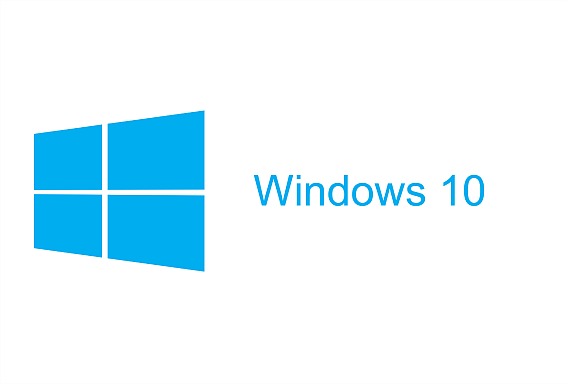Windows 10 Build 14393.2034 (KB4057142) Releases For Anniversary Update PC
The software giant – Microsoft has announced Windows 10 Build 14393.2034 (KB4057142) for Anniversary Update PC in the Windows support site. The update do not include new operating system features, but comes with bunch of quality improvement and fixes. If you’re already running the Windows 10 Anniversary Update on PC, the update should available to download via Windows update.
Key changes include:
- Addresses issue where some Microsoft-signed ActiveX controls don’t work when the Windows Defender Application Control (Device Guard) is enabled. Specifically, class IDs related to XML HTTP in msxml6.dll don’t work.
- Addresses issue where using smart cards on a Windows Terminal Server system may cause excessive memory use.
- Addresses issue where the virtual TPM self-test isn’t run as part of virtual TPM initialization.
- Improves compatibility with U.2 NVMe devices, specifically in hot-add/removal cases.
- Addresses issue where the iSCSI Initiator Properties Devices list doesn’t display certain targets.
- Adds compatibility for NGUID and EUI64 ID formats for NVMe devices.
- Addresses synchronization issue where backing up large Resilient File System (ReFS) volumes may lead to errors 0xc2 and 7E.
- Addresses issue where the UWF file commit adds old data to files in certain scenarios.
- Addresses issue where access-based enumeration may not work as expected in some scenarios after you install KB4015217 or later. For example, a user may be able to view another user’s folder to which they don’t have access rights.
- Addresses issue where AD FS incorrectly displays the Home Realm Discovery (HRD) page when an identity provider (IDP) is associated with a relying party (RP) in an OAuth Group. Unless multiple IDPs are associated with the RP in the OAuth Group, the user isn’t shown the HRD page. Instead, the user is navigated directly to an associated IDP for authentication.
- Addresses issue where PKeyAuth-based device authentication sometimes fails in Internet Explorer and Microsoft Edge when AD FS returns a context that exceeds the request limits for URL length. Event 364 is logged in the AD FS 2.0 Admin log with the following exception details: “System.Security.Cryptography.CryptographicException: The signature is not valid. The data may have been tampered with….”
- Addresses issue in AD FS where MSISConext cookies in request headers can eventually overflow the headers’ size limit. This causes authentication failure with the HTTP status code 400: “Bad Request – Header Too Long.”
- Addresses issue where AD FS produces an MFA Event 1200 log that doesn’t contain UserID information.
- Addresses issue where retrieving the Certificate Revocation List (CRL) from the Certification Authority (CA) using the Simple Certificate Enrollment Protocol (SCEP) fails. Users see event ID 45, which says, “NDES cannot match issuer and serial number in the device request with any Certification Authority (CA) Certificate”.
- Enables IT administrators to scientifically troubleshoot I/O failures using a comprehensive event log for the resiliency state transition.
- Provides transparency about replication health. It represents the state of replication by indicating when:
- The free disk space is running low.
- The Hyper-V Replica Log (HRL) size is growing to its maximum limit.
- The Recovery Point Objectives (RPO) threshold has been violated.
- Addresses issue where, if the Online Certificate Status Protocol (OCSP) renewal date comes after the certificate expiration date, the OCSP-stapled response is used until the renewal date even though the certificate has expired.
- Addresses issue where backwards compatibility for managing Microsoft User Experience Virtualization (UE-V) with group policy is lost. Windows 10 version 1607 group policy isn’t compatible with Windows 10 version 1703 or higher group policy. Because of this bug, the new Windows 10 Administrative Templates (.admx) cannot be deployed to the Group Policy Central Store. This means that some of the new, additional settings for Windows 10 aren’t available.
- Addresses issue with the App-V package folder access that causes the access control list to be handled incorrectly.
- Addresses issue that causes a delay when searching for new printers to add.
- Addresses issue where users may not be able to change passwords on the remote logon screen if the password has expired.
- Addresses issue where custom application defaults are sometimes not imported when using the DISM command.
- Addresses issue originally called out in KB4056890 where calling CoInitializeSecurity with the authentication parameter set to RPC_C_AUTHN_LEVEL_NONE resulted in the error STATUS_BAD_IMPERSONATION_LEVEL.
- Addresses issue where some customers with AMD devices get into an unbootable state.
You can share or follow us on Twitter, add us to your circle on Google+ or like our Facebook page to keep yourself updated on all the latest info from Microsoft, Google, Apple and the Web.
Recent Articles
- How To Download HBO Shows On iPhone, iPad Through Apple TV App
- Windows 10 Insider Preview Build 19025 (20H1) for PC Official Available for Insiders in Fast Ring – Here’s What’s News, Fixes, and Enhancement Changelog
- Kaspersky Total Security 2020 Free Download With License Serial Key
- Steganos Privacy Suite 19 Free Download With Genuine License Key
- Zemana AntiMalware Premium Free Download For Limited Time
Tags
amazon
Android
apple
Apple iPad
Apple iPad mini
Apple iPhone
Apple iPhone 5
Apple iPod touch
Apple iTunes
Ashampoo Burning Studio
AVG Internet Security
BitDefender Internet Security
F-secure
Facebook Home
Free
Google Apps
Google Chrome
Google Maps
Instagram
iOS
iOS 7.1
iOS 8
iOS 9
ios 9.1
iOS 9.3
LG
Mac OS X
microsoft
Microsoft Office 365
Microsoft Office 2010
Microsoft Office 2013
Microsoft Office 2016
Microsoft Surface
Mozilla Firefox
Samsung
Skype
WhatsApp
Windows 7
Windows 8
Windows 8.1
Windows 10
Windows Vista
Windows XP
WordPress
YouTube






